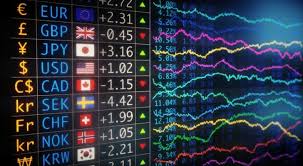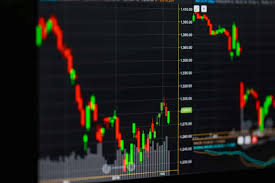
Forex trading, short for foreign exchange trading, is the process of buying and selling currencies in the global financial market. It is one of the largest financial markets in the world, with trillions of dollars exchanged every day. Investors and traders participate in Forex trading to profit from fluctuations in currency values. For those looking to dive deeper into this dynamic industry, what is forex trading https://acev.io/ provides valuable insights and tools.
What is Forex Trading?
At its core, Forex trading is the act of exchanging one currency for another, aiming to profit from the changes in exchange rates. Unlike stocks, which represent shares in a company, currencies are traded in pairs. This means that when a trader wants to buy one currency, they are simultaneously selling another. The Forex market operates 24 hours a day, five days a week, and is accessible to traders of all levels, from beginners to experienced investors.
How Forex Trading Works
The mechanics of Forex trading involve several key components:
- Currencies: In Forex, currencies are traded in pairs, such as EUR/USD (Euro/US Dollar) or GBP/JPY (British Pound/Japanese Yen). The first currency in the pair is the base currency, while the second is the quote currency.
- Exchange Rate: The exchange rate indicates how much of the quote currency is needed to purchase one unit of the base currency. For example, if the EUR/USD exchange rate is 1.20, it means that 1 Euro can be exchanged for 1.20 US Dollars.
- Bids and Offers: The bid price is what buyers are willing to pay for the base currency, while the ask price is what sellers are asking for. The difference between the bid and ask price is called the spread.
The Participants in the Forex Market

The Forex market boasts a diverse array of participants, which can be broadly categorized as follows:
- Central Banks: National banks regulate the supply of their currency and influence exchange rates through monetary policy.
- Financial Institutions: Major banks engage in Forex trading to facilitate international transactions and for speculative purposes.
- Corporations: Companies conduct Forex trading to hedge against currency fluctuations that may impact their profits from international business activities.
- Retail Traders: Individual traders participate in the Forex market through online platforms, aiming to profit from short-term price movements.
Forex Trading Strategies
There are various strategies that traders can utilize in the Forex market. Here are a few popular approaches:
- Day Trading: This strategy involves opening and closing positions within a single trading day to capitalize on small price movements.
- Swing Trading: Swing traders hold positions for several days or weeks, looking for bigger price shifts.
- Position Trading: This long-term strategy involves holding trades for months or even years, based on fundamental analysis.
Types of Analysis in Forex Trading
Successful traders often rely on different forms of analysis to inform their trading decisions:
- Technical Analysis: This approach involves analyzing price charts and using various indicators to predict future movements based on historical data.
- Fundamental Analysis: Traders assess economic indicators, geopolitical events, and other factors that may influence currency values.
- Sentiment Analysis: This method gauges the overall mood of the market, which can help in predicting price movements based on trader psychology.

Getting Started with Forex Trading
If you are interested in venturing into Forex trading, here are some steps to help you get started:
- Educate Yourself: Gain a thorough understanding of the Forex market, trading strategies, and risk management.
- Choose a Reputable Broker: Select a broker that is regulated and offers a user-friendly trading platform.
- Create a Trading Plan: Establish clear goals, risk tolerance, and specific strategies to guide your trading decisions.
- Practice with a Demo Account: Before trading with real money, use a demo account to practice and familiarize yourself with the trading platform.
- Start Small: When you’re ready to trade live, start with a small amount to manage risk effectively.
Risks Associated with Forex Trading
While Forex trading can be lucrative, it also comes with significant risks that traders should be aware of:
- Leverage Risk: Forex trading often involves leveraging your capital, which can amplify both gains and losses.
- Market Volatility: Currency prices can be extremely volatile, leading to sudden, unpredictable price movements.
- Emotional Trading: The psychological aspect of trading can lead to impulsive decisions that result in losses.
Conclusion
Forex trading presents an exciting opportunity for individuals and institutions alike to engage with the global economy. Understanding the fundamentals of the Forex market, along with effective strategies and risk management, can pave the way for successful trading experiences. As you embark on your trading journey, remember to continue learning and adapting to the ever-changing landscape of foreign exchange.


